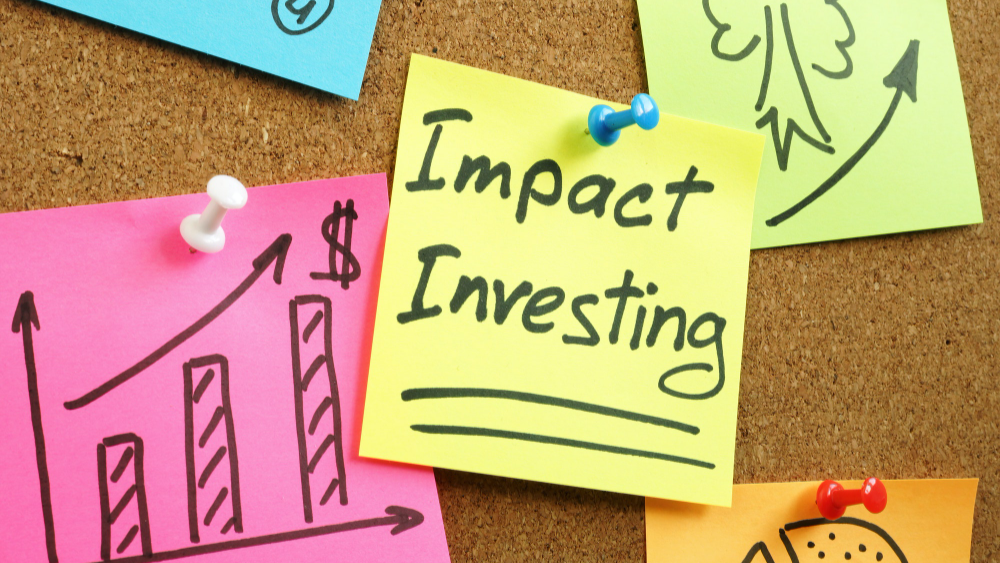Insights
INSIGHTS
All Topics
My Account
What is an impact investment?
28 Dec 2021by Christine Chiu
We look at the ins and outs of social impact investing and the opportunities it presents for charities
Catching a whiff of the financial pages, you can’t help but notice the terms ESG, CSR, and impact investing throughout. While environmental, social and corporate governance (ESG) and corporate social responsibility (CSR) are well-known, impact investing is relatively new.
For charities, impact investing could be an opportunity to attract funding. Here, we take a look at the fundamentals and how digital can help.
What is an impact investment?
Impact investing is growing in importance for traditional donors and investors. The term is often interchanged with ‘social’ impact investment, as they are similar in meaning, but social impact investment means choosing an investment opportunity because it is ethical, as well as financially viable.
Social impact investors want to make sure that they not only get a financial return, but that the funding goes to doing good. Charities can participate in this space as both recipients and donors (i.e. investors).
Informally, the Global Impact Investing Network (GIIN) offers the most authoritative definition of impact investing. They say that “impact investments are investments made with the intention to generate positive, measurable social and environmental impact alongside a financial return.”
Put more simply, an impact investment is one that offers good social outcomes in addition to making money.
What charities need to know
What’s important to understand is that the impact investment market is huge and has potential to grow. One of the UK’s most prominent investors, Big Society Capital (BSC) is seeing growth. In the UK alone, the social impact investment market is worth £5.1 billion, as of 2019. BSC’s annual market estimate finds that between 2011 and 2019, the market grew six-fold.
Stephen Muers, interim CEO of BSC says that “the impact of COVID-19 has been both social and economic and I believe will be a key driver in shifting investors’ focus from a purely financial return to one that delivers a social impact too. I expect social impact investment to play an increasingly important role as an engine of the economic recovery.”
Charities looking to explore the impact investing market place can look to make or receive investment.
Making an impact investment
Finance can be scary for charities starting out, especially since there are elements of risk. Fortunately CAF offers good advice and guidance on why making external investments is good for charities.
The main reason is financial return. These investment returns can help charities protect against inflation, build a reserve for a rainy day, and make better use out of cash savings. For especially savvy charity investors, investment returns could also help fund future projects.
Making an impact investment doesn’t have to be complicated. There are many options for charities with funds to spare. A popular investment opportunity is a Donor Advised Fund (DAF).
A DAF is collection of funds which support different social and/or environmental aims. Donors are able to choose multiple charitable purposes to support without the hassle of using many providers.
For example, Prism the Gift Fund offers a DAF for high net worth donors. The fund organises and reports on the investment so donors don’t have to keep track of performance, admin, or taxes.
Ultimately charities can do more with the funds they have by putting them to work in impact investments.
Attracting impact investors
Like many wealthy donors, charities can ring up a specialist broker for help. Brokers (i.e. intermediaries) help by connecting donors with charity or NGO projects which need funding.
They can also help charities prepare for investment by ensuring that the project is ‘investable’. In the UK, organisations like Investing for Good and Nesta work with charities to get ready for external investment. By arranging a broker, charities can connect with high net worth donors, philanthropists and institutional investors without going at it alone.
Getting ahead of the curve
Investors are heating up the market for impact investments. For charities looking to read up on what’s going on, there are lots of digital resources and tools.
UK Government
Government is a good place for guidance on investment. The digital pages focus on the legal requirements and what trustees and board members need to consider. The top tip here is for charities to invest in opportunities which align with their own charitable purposes and goals.
Big Society Capital
BSC is one of the UK’s most influential social impact investors and has led the way launching social investment funds. The market data pages are great resources for charities looking for more information on the breakdown of the impact sector.
The National Philanthropic Trust UK
The NPT UK offers information for more sophisticated, institutional investors. The NPT works across both the UK and US, so charities with opportunities overseas should check out these resources. Our top tip here is to review the 2020 DAF Report for analysis and trends.
The Impact Investing Institute
For passionate charities looking to upskill staff in impact investing, the Impact Investing Institute offers learning modules. The Impact Learning hub helps audiences through the stages of making an impact investment, including sourcing, screening and due diligence. These sources are geared towards sophisticated charity investors and donors.
More on this topic
Recommended Products
21 Feb 2025by Ioan Marc Jones
How charities stopped centring service users
20 Feb 2025by Laura Stanley
The simplest way to collect contactless donationsSponsored Article
Our Events
Charity Digital Academy
Our courses aim, in just three hours, to enhance soft skills and hard skills, boost your knowledge of finance and artificial intelligence, and supercharge your digital capabilities. Check out some of the incredible options by clicking here.















